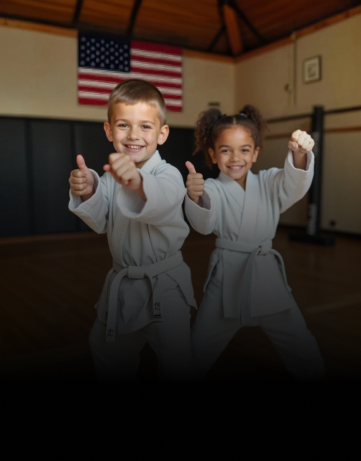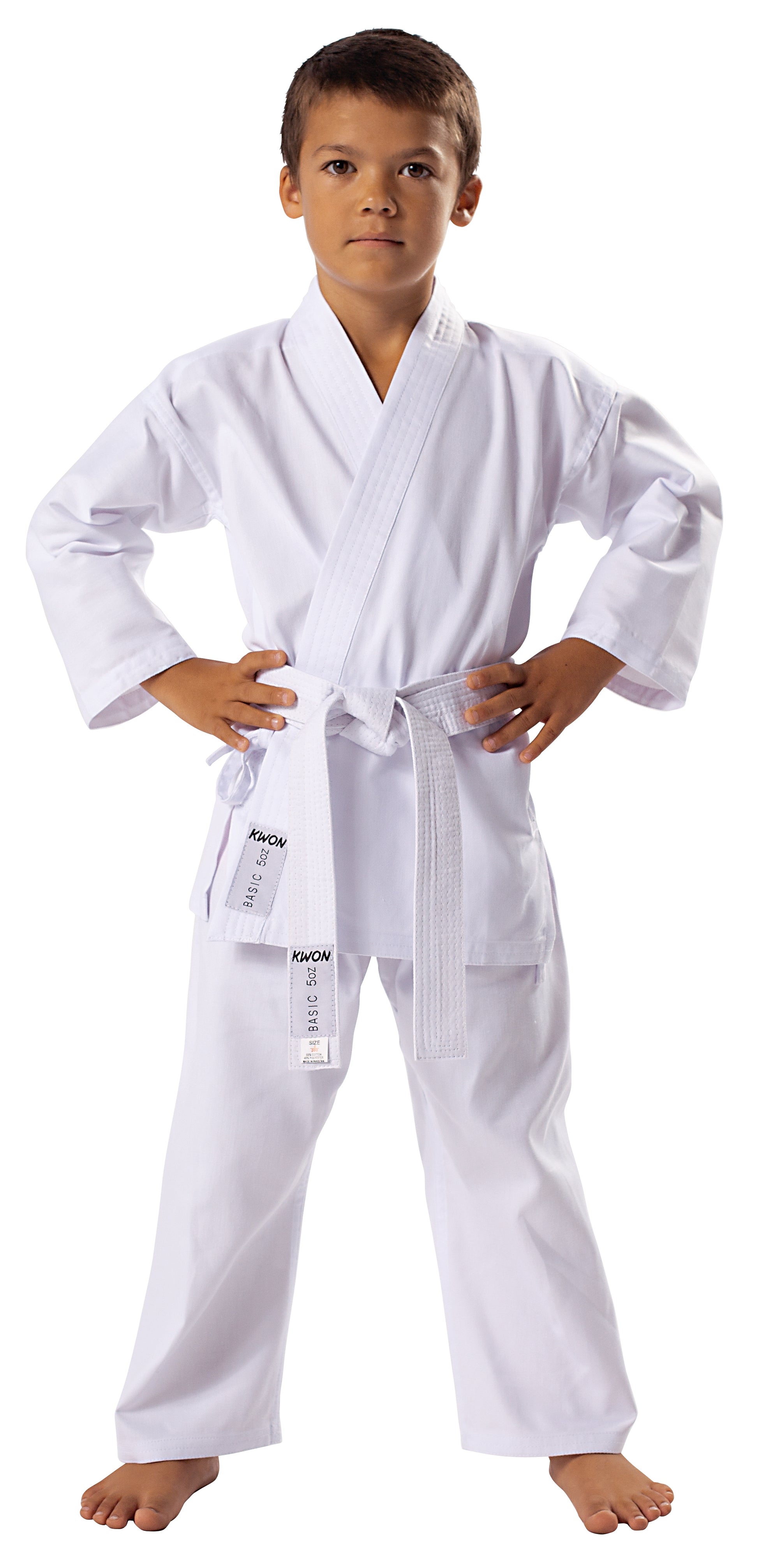How Karate for Children Can Increase Self-confidence and Technique in Youthful Martial Artists
Karate for children offers a special opportunity to construct confidence and self-control in young martial artists. As they discover brand-new strategies and face obstacles, they not only acquire skills yet also establish a strong feeling of self-respect. This structured environment encourages them to value the trip of renovation. Yet exactly how does this training equate right into their day-to-day lives? Discover the much deeper links that make karate more than simply a sporting activity.
The Significance of Self-confidence in Childhood Years Development
Confidence is a crucial structure block in childhood advancement. When you nurture your youngster's self-confidence, you encourage them to face obstacles, take risks, and express themselves openly. Youngsters with confidence are much more happy to check out brand-new tasks and social circumstances, which can result in enduring friendships and beneficial experiences.Encouraging your kid to tip out of their convenience area promotes resilience. They learn that failure isn't the end yet rather a tipping stone to success. By commemorating their accomplishments, no matter exactly how little, you aid them identify their capacities and worth.In this journey, assistance and favorable support from you play an essential duty. Whether it's via praise or just existing, your involvement improves their confidence. As they expand, this confidence becomes a long-lasting property, furnishing them to navigate both obstacles and chances with a solid sense of self.
How Martial Arts Teaches Technique and Emphasis
Martial arts assists you develop self-control and emphasis with its structured training routine. As you practice mindfulness during each session, you'll discover to concentrate much better both on and off the mat. And also, establishing and achieving goals in karate strengthens your capability to stay dedicated and conscientious.
Structured Training Routine
While you participate in karate training, you'll swiftly discover exactly how an organized regimen infuses self-control and focus in young experts. Each class adheres to a specific style, consisting of warm-ups, method method, and sparring. This uniformity instructs you to devote and value the procedure to improvement. As you learn techniques and kinds, you establish a feeling of duty for your own progress.The structured atmosphere encourages you to set goals, whether mastering a new belt or developing a kata. You'll find that remaining concentrated throughout drills and courses hones your concentration. The discipline you cultivate in karate extends beyond the dojo, favorably impacting your schoolwork and day-to-day routines. Each session enhances the relevance of dedication, aiding you grow into an extra disciplined person.
Mindfulness in Technique
As you practice karate, you'll locate that mindfulness ends up being an important part of your training. Each step needs your full attention, aiding you stay concentrated on the here and now minute. You'll discover to disregard interruptions and focus on your breathing, activities, and intentions. This increased understanding develops your reflexes and boosts your discipline.During sparring or types, you'll discover the importance of being mentally existing - Karate Salisbury MD. You'll discover exactly how this focus not only boosts your strategy however likewise constructs your self-confidence. By practicing mindfulness in martial arts, you cultivate patience and durability, vital traits that expand beyond the dojo. In this means, martial arts shows you to harness your mind, aiding you create a regimented method to difficulties both on and off the floor covering

Setting Goal Techniques
Establishing objectives in karate isn't nearly gaining belts; it's an effective means to cultivate technique and emphasis. When you set certain, attainable targets, you create a roadmap for your progress. Instead of just intending to enhance your kicks, try concentrating on grasping a specific method each month. This approach maintains you inspired and engaged.Breaking down larger objectives into smaller, convenient steps helps you track your progression and commemorate small triumphes in the process. Whether it's improving your position or increasing your sparring endurance, every goal enhances your commitment. As you achieve these goals, you'll develop self-confidence in your abilities and develop a strong feeling of self-control that prolongs beyond the dojo right into day-to-day life.
Building Durability With Martial Arts
Fighting style, especially martial arts, uses children a special opportunity to build resilience in an encouraging environment. In courses, they encounter difficulties that push their restrictions, whether it's sparring or mastering a brand-new technique with a partner. Each setback, like a missed kick or a lost suit, ends up being a chance to learn and grow.As they exercise, kids learn to accept discomfort and keep attempting, even when things get difficult. They uncover that failure isn't completion; it belongs to the journey. This frame of mind helps them recuperate more powerful, not just in the dojo, however in day-to-day life.With each difficulty they get over, your child constructs confidence in nba scoreboard their capability to take on obstacles, fueling their determination. With karate, they'll comprehend that resilience isn't almost physical strength; it's concerning mental grit and perseverance, empowering them to encounter whatever life tosses their method.
The Role of Regard in Karate Educating
Regard is a fundamental concept see this website in karate training, promoting a culture of technique and friendship among trainees. When you tip onto the dojo floor, you're not simply finding out methods; you're likewise discovering to respect your instructors, peers, and the art itself (Karate Salisbury MD). Bowing at the start and end of class isn't just a rule; it symbolizes your acknowledgment of others' dedication.as and efforts you develop shared respect, you'll find it enhances your discovering experience. You'll pay attention a lot more diligently to your trainer and gain insights from fellow trainees. This setting encourages useful criticism and assistance, allowing every person to grow together.Moreover, respect grows self-control. Identifying the worth of effort and humility assists you stay concentrated on your training. Consequently, this respect converts right into your everyday life, boosting your interactions and partnerships outside the dojo. Through karate, you discover that regard is necessary for individual development and neighborhood building
Establishing Objectives and Accomplishing Success in Martial arts

Social Skills and Team Effort in the Dojo
While training in the dojo, youngsters naturally create important social skills and synergy capabilities. As they exercise along with peers, they find out to communicate properly, share room, and assistance one another. Each class provides chances for partnership, whether it's throughout partner drills or team workouts. This team effort promotes friendships and produces a sense of belonging, making the dojo a nurturing environment.Kids additionally gain valuable problem resolution skills. When they encounter difficulties, such as arguments during sparring, they discover to navigate these scenarios constructively. They exercise patience and empathy, comprehending that every person has various staminas and weaknesses.Moreover, joining team tasks cultivates a feeling of responsibility. You'll see your youngster learning to depend on teammates and take obligation for their function in a team. These experiences not just boost their martial arts trip yet likewise outfit them with social devices they'll lug into various other locations of life.

The Long-Term Conveniences of Karate Beyond Childhood
As children expand up and change right into adulthood, the advantages of martial arts extend far beyond the dojo. You'll discover that the discipline and emphasis discovered via martial arts can convert into your scholastic and expert life. Establishing and accomplishing goals in martial arts tennis news cultivates a solid work ethic, which can push you to master any kind of endeavor.Moreover, the self-confidence acquired from competing and mastering techniques can improve your self-confidence, assisting you tackle challenges head-on. This strength comes to be very useful as you face the unpredictabilities of adulthood.Additionally, the social skills established with team effort and friendship in the dojo can lead to much better partnerships in both individual and specialist spheres. You'll discover to communicate effectively, resolve disputes, and develop a helpful network.Ultimately, karate forms not simply skilled martial musicians, but all-around individuals prepared to handle the globe.
Regularly Asked Questions
What Age Is Ideal to Begin Karate for Children?
You can start karate as early as age 4 or 5, but it often relies on your kid's maturity and rate of interest. Finding a course that fits their age and power level makes a huge distinction.
Exist Any Health And Wellness Advantages From Practicing Karate?
Yes, exercising karate deals numerous health benefits. You'll improve your sychronisation, stamina, and adaptability while improving cardiovascular health and fitness. Plus, it improves emphasis and mental wellness, making it a wonderful choice for overall physical and mental health.
How Usually Should Children Go To Karate Courses?
You must encourage your youngsters to attend karate courses at the very least 2 to 3 times a week. Consistency assists them find out strategies effectively and develop abilities, making their experience much more fulfilling and pleasurable in the future.
Can Karate Assist With Handling Stress And Anxiety in Kid?
Yes, martial arts can help take care of stress and anxiety in youngsters. It shows emphasis and self-control while offering a risk-free outlet for energy. You'll observe your kid expanding much more tranquil and confident as they practice routinely.
What Equipment Is Required for Children Beginning Karate?
